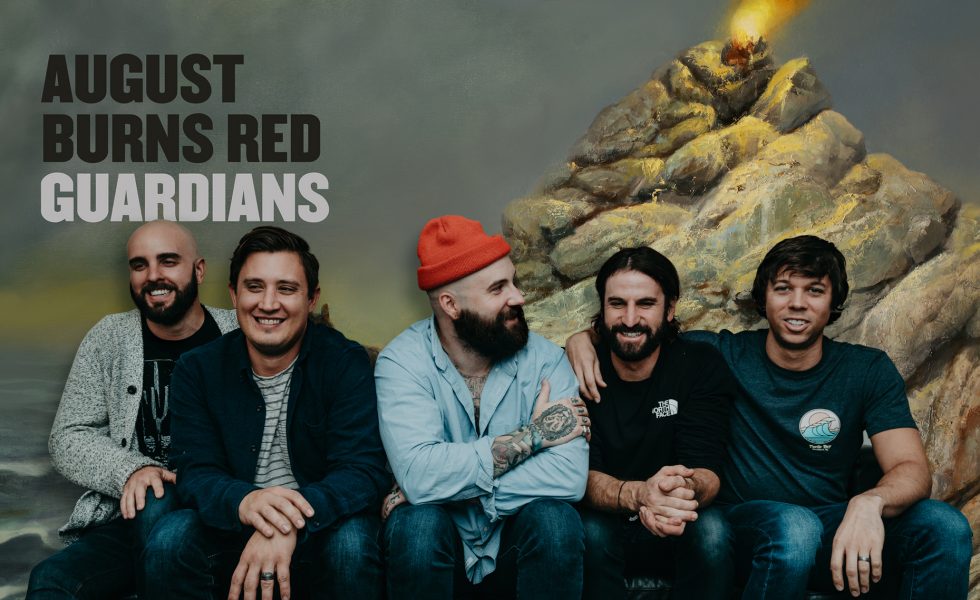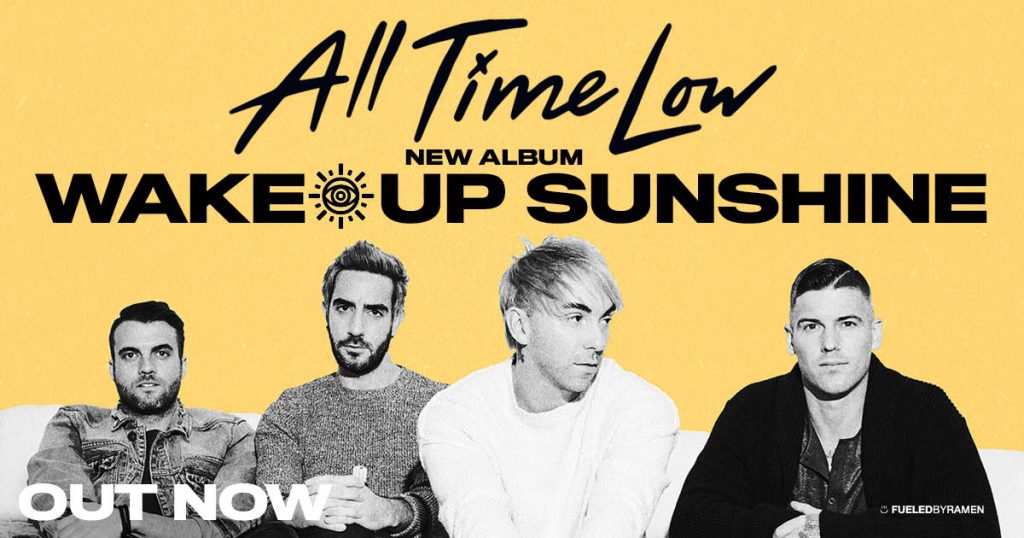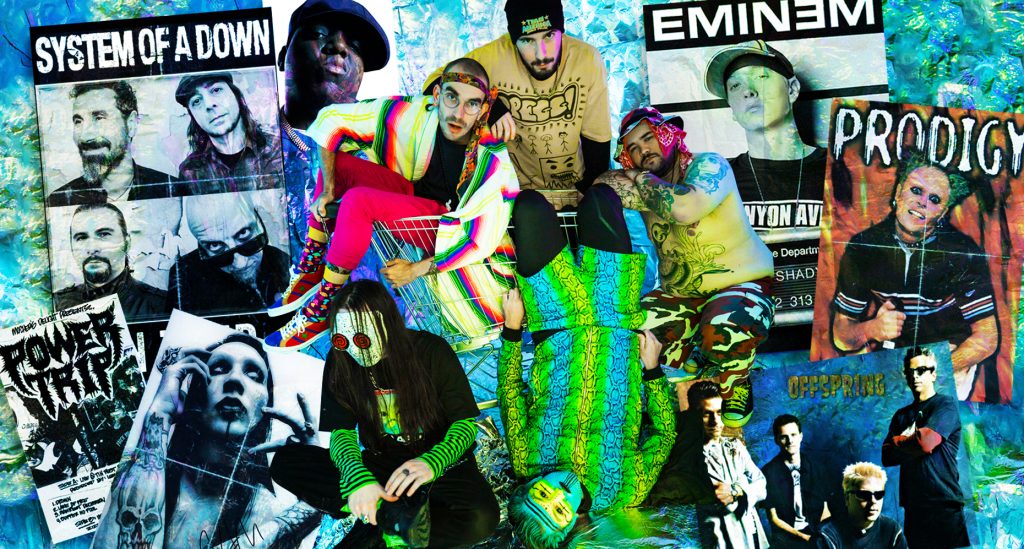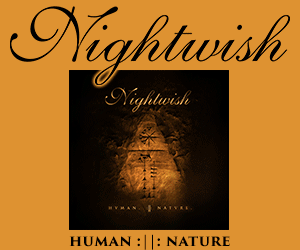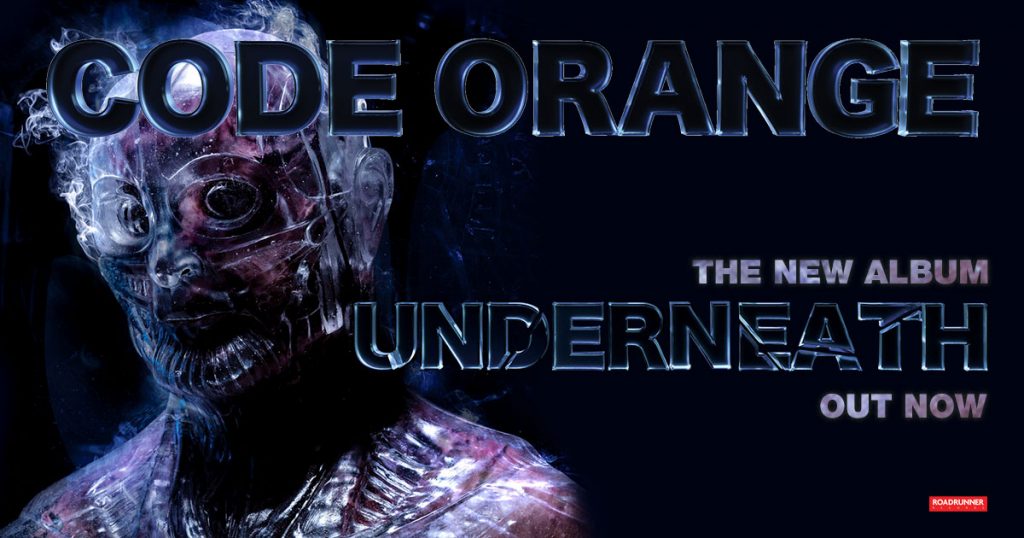Brisbane’s pop-punk upstarts Two Times Shy are soaring lofty heights as they let loose their …
April 2020. We’re entering the fourth month of what is likely the most memorable year some of us will ever live. It is, without a stretch of the imagination, a period of time in which hope of a quick fix is beginning to fade and the realities of separation are setting in.
MORE: AUGUST BURNS RED: Guardians // OCEAN GROVE: A Slight Return To Earth // NORMA JEAN: In Service Of Rock And Roll REVIEWS: THE AMITY AFFLICTION: Everyone Loves You… Once You Leave Them // OCEAN GROVE: Flip Phone Fantasy // CODE ORANGE: Underneath // VIOLENT SOHO: Everything Is A-OK // THE CHATS: High Risk Behaviour // ALL TIME LOW: Wake Up, Sunshine
A world that is shutting down and closing borders, manifesting distrust between us. For August Burns Red it’s a complete and utter coincidence that they conceived a record called Guardians prior to the pandemic currently obliterating the population’s relationships with each other.
Throughout their 17 year long career, the band’s themes have always been shaped by faith, love, and lofty concepts of that same ilk. So when speaking to Matt Greiner, drummer extraordinaire and rightfully entitled one of metalcore’s most talented percussionists, about the record, it’s not just a normal interview. This is a record filled with lyrics pleading for strangers and friends alike to band together, that has landed as part of the zeitgeist, unbeknownst to anyone. We fanboy to Greiner about how much we love first single Defender. We fanboy hard. We tell him that it’s easily one of the best tracks of the year (as noted in our review of the record), and unsurprisingly Greiner already knows exactly what part we’re gushing over too. “That’s incredible, I love that! It’s funny especially for me to hear that because I know exactly what part you’re talking about. I wrote the lyrics to that song: the lyrics [to the part you’re raving about] are ‘deliver the sentence’ right?”
We confirm that yes, the slow, rasped, punctuated pit call is exactly what we’re talking about. Greiner, who is more than happy to dive deeper into the song, explains: “[Defender] is actually about my Dad. I went through a situation over the course of the last two years that was difficult. I was really struggling and my Dad knew it. I was talking to him about it and my Dad, for the first time in my life, got mad on my behalf. I had always viewed love as a positive affection whether it’s a hug, a kiss, an ‘I love you, I care about you’ and for the first time in my life I think I saw a type of love that maybe wasn’t more profound, but equally as powerful. Seeing my Dad … the song says ‘righteous wrath’ and that’s what it was. The idea that you’re hurting, you can hardly stand up on your own two feet; I’m going to hold you up. I’m in your court. I’m mad that someone else is cutting you down. I’m going to do something about it because I love you. As I was writing the song it was about someone I really cared about and on the other hand it was about my Dad. I was in the middle of these two people. The ‘deliver the sentence’ part is about the realisation that there’s no judge, no jury, no gavel to deliver it. Who will deliver the sentence? ‘A rock and a hard place sounds easy compared to this’. I was in between two difficult things. There was no one to call the shots but me so that setup the breakdown. I never would’ve imagined that ‘who will deliver the sentence’? is a line that would stand out on the album but I knew that as soon as I finished the song it would be a relatable lyric to a lot of people. In fact it is what’s made the album called Guardians. We picked a synonym of Defender—which as it turns out is Guardians.”
I wrote the lyrics to Paramount, and Three Fountains–it’s about Paul the Disciple who was murdered. His head was cut off and the story goes that his head bounced three times, and from those three bounces, three fountains came up.
[ Matt Greiner ]
Relatability in music can, however, be derided as ‘too easy’. Metalcore is often ridiculed for being straightforward and crowdpleasing. ‘Give them the old razzle dazzle of a chug and an arf arf and be done with it’ type of operation. That’s not the August Burns Red way. Fans are therefore understandably devoted to a band of this calibre, regardless of their relationship with music. It doesn’t matter if you know music theory or barely understand how a snare fits into the mix; you just know that it sounds good when the band is done with it. The military snare pattern that closes the track out for Bloodletter, by way of example, may seem simple enough in its execution. But for Greiner and the rest of the band, their ability to forensically examine their own approach to songwriting is how they craft such intricate albums. “Bloodletter—musically speaking–was written last,” says the drummer when asked about how they came up with the song’s tension-heavy bridge. “It was written last because we wanted to write a really, really heavy song. We felt like we needed more heavy so JB and Dustin–I believe they both worked on it and they’re just amazing songwriters. They have a knack for writing awesome guitar parts. They put together a song and we worked on it a little differently. Like this interview, I got it really late and last minute [laughs]. I was actually in the studio recording when I first started working on it. I didn’t have any time on it. I went part by part recording because I didn’t know what the next part was going to be until I got there. We got to the end part where it goes *imitates snare pattern* and we worked on that part for a while because it’s hard for us to write a part like that and be proud of it. Unless it’s just right because for us, that feels teasy and too easy unless there’s a lot of thought going into it. Otherwise it just feels like the most common and typical tongue in cheek thing to do. We try not to do that. We worked on that part at the end for a while and wanted to have a marching-like build-up and it turned out pretty cool. There was a moment where we had an idea for me to hit a cymbal and grab it to stop it so it sounds really tight. I think there’s a pinch harmonic there. I couldn’t do it while I was playing because I was hitting too many things. So JB, our guitarist, came in and grabbed the cymbal for me while I recorded it [laughs]. I’ll never forget it, it was very funny.”
The explanations that Greiner provides for one song alone are enough to fill a Genius bio that, with the same content, would comprise 10 track exposés for other, less in-depth songwriters. Take for example, the drummer continuing his explanation about Defender’s inspiration: “[There’s a lyric that goes] ‘Like a hurricane passing over a calming sea’. The song is full of metaphors that identify someone is bending so you don’t break. It’s two opposites coming together to create a solution. That became a theme of the album. I wrote the lyrics to Paramount, and Three Fountains–it’s about Paul the Disciple who was murdered. His head was cut off and the story goes that his head bounced three times, and from those three bounces, three fountains came up. The lyric is about how when something looks like it dies and ends, oftentimes we write it off as a failure or a tragedy. When in fact just because we can’t see a reason for difficulty, doesn’t mean there isn’t one. Oftentimes there’s new life and new hope that came as a result of what happened and not in spite of it. There are all these themes that have to do with very positive and hopeful values. Lighthouse is a song about the Good Samaritan and about how we need to do a much better job of reaching out and helping people. It’s interesting the record is coming out right now with COVID-19, with the state of the world and I think it’ll be a message that’s received pretty well as a result.”
Which is what we enjoy from our performers. We want to know that they hear us, that they see our love and devotion to them. We need to know that they feel the same sense of isolation and loneliness that we do. Selfishly so, but humanising our heroes is how the world works these days. Now more than ever we’re reaching for screens in a desperate attempt to find connection. However, as Greiner espoused above regarding Three Fountains, this time in our lives doesn’t have to be seen as a constant source of despair. Although he would normally be splitting time equally between preparing for tour and online drum lessons, Greiner has been teaching fans nonstop in the hours prior to our interview. A few days ago he posted an adorable photo of a toddler, who requested to see his Nike shoes after viewing them in Greiner’s YouTube tutorials. Something like that must be special to witness, we question, given that there are so many small things that his band often must not realise mean so much to their fans. He agrees entirely: “That’s what this entire experience is being in a band. It is the totality of normal things becoming extraordinary in the eyes of other people. It’s bizarre because I wear Nikes just like everybody else does. But I was wearing them in a video and because it’s online and I’m playing double kicks–this adorable 2.5 year old saw them and thought ‘Oh gosh, that must be it–that must be the trick.’ So what we get to do is incredible and we’re so fortunate to have the opportunity to not only make music and perform it for a living, but to make that kind of potentially positive impact on people. It really is more than just the music. The stuff that’s about the music is amazing, but the things that are more than the music? That’s what I’m in it for. Drum lessons are really about that. At least 50% of the conversation is: ‘How are you doing? How are you holding up? Where do you work? How’s your family? Talking about real life. Half is probably drumming and they dictate that. I’m fine to teach the entire time. [But] I walk away at the end of the day fully satisfied because relationally, I’ve been fulfilled. I think other people have too. For me, it’s about that connection that has so much significance.”


